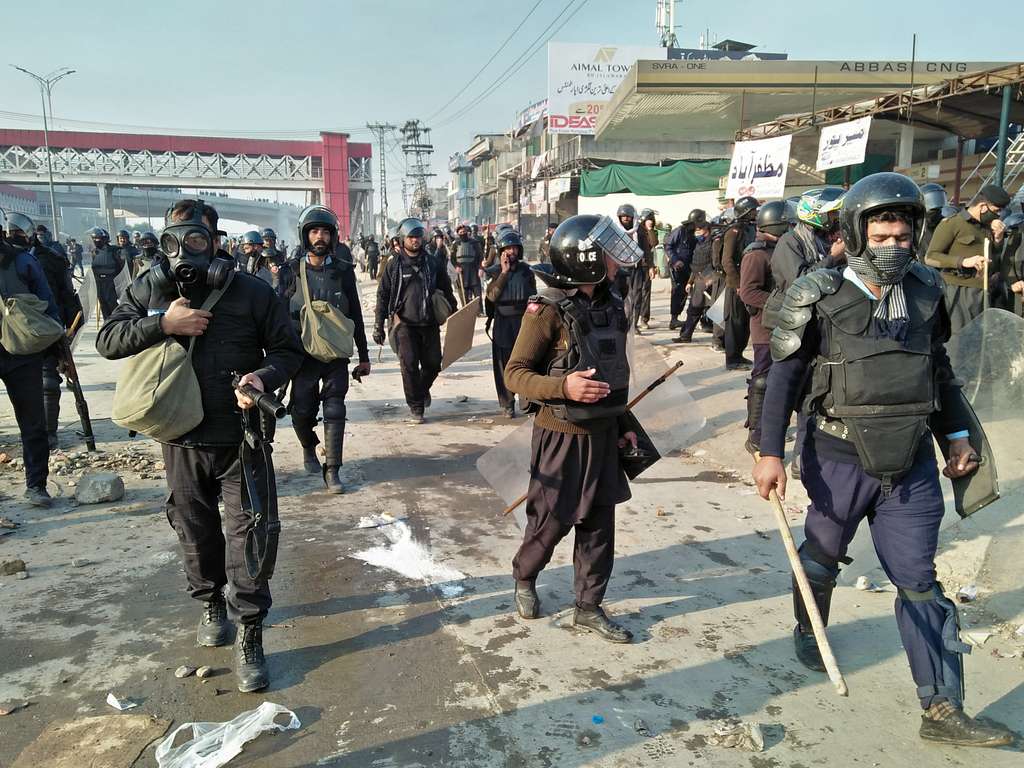Today's Headlines and Commentary
The White House has agreed to some modifications to the Nunes memo at the request of the FBI, and President Trump is expect to authorize the release of the document today or tomorrow, the Washington Post reports.
The White House has agreed to some modifications to the Nunes memo at the request of the FBI, and President Trump is expect to authorize the release of the document today or tomorrow, the Washington Post reports. The administration maintains that releasing the memo will not harm national security; officials claim they only accepted the bureau’s requests in order “to protect sensitive law enforcement methods.”
Senior White House officials are concerned that FBI director Christopher Wray may resign if the administration allows the Nunes memo to be published over the FBI and Justice Department’s objections, CNN reports. Sources noted that Wray had not formally said he would do so, but said the director was frustrated that the White House would not heed his advice that releasing the memo was misleading and could jeopardize intelligence sources and methods. On Wednesday, the FBI released a statement noting “grave concerns” with the memo’s misleading nature.
Late Wednesday evening, Rep. Adam Schiff, the top Democrat on the House intelligence committee, accused GOP lawmakers of sending the White House “an altered version” of the Nunes memo on alleged government surveillance abuses, Politico reports. Schiff demanded that intelligence committee Republicans withdraw the altered version of the memo that they sent to the White House, stating that the changes made to the memo required a new vote on whether to release the edited document. Jack Langer, spokesman for Republicans on the House intelligence committee, described the edits made to the document as “minor…, including grammatical fixes and two edits requested by the FBI and by the minority themselves.” On Thursday, Sen. John Thune, the third-ranking Senate Republican, urged his fellows in the House to consider carefully the FBI’s warning not to release the controversial memo, the New York Times reports. Thune added that Republicans on the House intelligence committee should vote to release Democrats’ rebuttal memo if the Nunes memo is made public.
During a White House meeting in December, President Trump asked Deputy Attorney General Rod Rosenstein where the special counsel investigation was going and whether Rosenstein was “on [the president’s] team,” CNN reports. Though what Trump meant remains unclear, and Rosenstein responded diplomatically by saying “we’re all on your team, Mr. President,” this exchange is not the first time that Trump’s questions have transgressed norms about contact between the White House and federal law enforcement officials. The conversation between Trump and Rosenstein—like the president’s conversations with former FBI director James Comey and former FBI deputy director Andrew McCabe—could raise further concerns that the president sought to interfere with the special counsel investigation.
The Trump administration revealed that the Assad regime may be developing new, more advanced chemical weapons, PBS reports. U.S. government officials said that the characteristics of the recent, alleged chemical weapons attack in Syria indicate that President Bashar al-Assad’s government continues to produce chemical weapons. Such production would violate a 2013 deal that enjoined the creation of more chemical weapons and mandated the destruction of the stockpile then under the regime’s control. The same officials added that the Islamic State continues to use chemical weapons, too, employing sulfur mustard and chlorine in shells and improvised explosive devices. Senior administration officials noted on Thursday that President Trump has not ruled out the use of military force to pressure the Assad regime to halt its use of chemical weapons, Agence France-Presse reports.
Defense Secretary James Mattis informed House and Senate Republicans on Thursday that the Trump administration plans to request $716 billion in defense spending for the coming fiscal year, the Hill reports. This request is close to $50 billion higher than the amount the Trump administration requested for the Pentagon for the fiscal year 2018. Mattis noted that this increase is necessary to enhance the lethality of the U.S. military and recover the military readiness that has, in his eyes, deteriorated in recent years. The secretary added that he cannot “maintain the U.S. military on CRs,” referring to the continuing resolutions that Congress has used lately to keep the U.S. government temporarily funded.
Tom Shannon, the undersecretary of state for political affairs and the highest-ranking career official at the State Department, announced his retirement on Thursday, AP reports. During a tumultuous year of transition, Shannon, who served as acting secretary and then acting deputy secretary as the White House slowly filled top diplomatic posts, provided the department with a sense of “diplomatic continuity” and, as increasing numbers of career officials left, much-needed expertise. Shannon has served in the Foreign Service for 35 years and under six administrations. He has agreed to remain in his post until the Senate confirms a successor.
ICYMI: Yesterday on Lawfare
Quinta Jurecic shared the transcript from the House intelligence committee’s meeting on Jan. 29 about Chairman Devin Nunes’ memo on alleged government surveillance abuses and summarized the meeting.
Orin Kerr argued that the legal premise undergirding Republicans’ efforts to release the Nunes memo is dubious.
Matthew Kahn posted President Trump’s executive order revoking the Obama administration’s decision to close the detention facilities at Guantanamo Bay.
Kahn and Shannon Togawa Mercer highlighted the sections of President Trump’s State of the Union address that pertain to national security.
Benjamin Wittes and Sabrina McCubbin submitted a Freedom of Information Act Request to determine if the federal government is hosting foreign visitors at the Trump International Hotel in Washington.
Responding to an article written by Benjamin Wittes discussing FBI deputy director Andrew McCabe’s departure from the bureau, Stewart Baker offered a bleaker perspective.
Elena Chachko discussed the implementation of Israel’s anti-BDS travel ban and observed that there do not seem to be any convincing legal arguments to prohibit Israel from denying BDS activists entry.
In response to headlines this week contending that the Trump administration violated the law by failing to impose new sanctions on Russia, Robert Chesney examined the legal statutes relevant to the administration’s decision.
Julia Solomon-Strauss and Stephen Szrom discussed the latest developments in United States v. al-Nashiri. The military commission continued admitting pre-trial evidence and addressed the ongoing absence of the majority of the defendant’s legal team.
Email the Roundup Team noteworthy law and security-related articles to include, and follow us on Twitter and Facebook for additional commentary on these issues. Sign up to receive Lawfare in your inbox. Visit our Events Calendar to learn about upcoming national security events, and check out relevant job openings on our Job Board.



.jpg?sfvrsn=407c2736_6)

